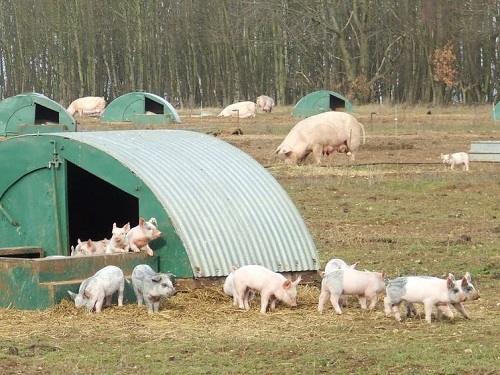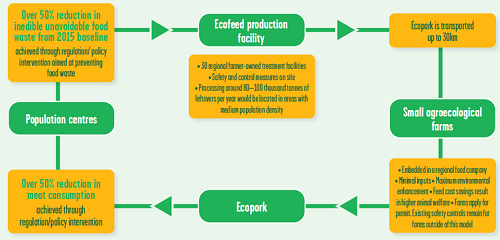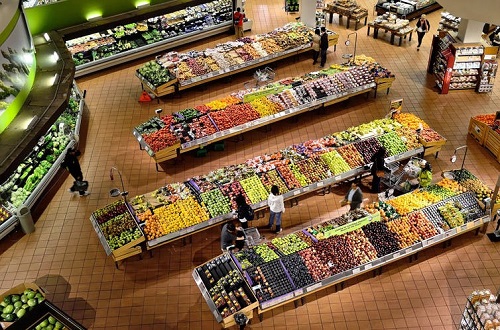Published in the Conversation UK, a new article from City, University of London and University of Cambridge academics suggests three ways of reducing UK food waste and increasing sustainability.
By Mr Shamim Quadir (Senior Communications Officer), Published
Food waste is a huge problem for the environment. Making and getting rid of excess food accounts for around 8-10% of greenhouse gas emissions. In fact, if global food waste were a country, it would rank third in the world for greenhouse gas emissions after China and the US. Globally, we throw away around a third of all food we produce.
Food waste starts on farms, which often produce more food than is needed in order to protect against the risk of bad weather, disease, and variable supermarket sales. Consumers tend to be fickle in their tastes, be it due to the weather or what’s just been featured on popular TV cooking shows. Grocery stores strive to respond to these changing demands, passing last-minute orders to farmers who are expected to deliver as soon as possible. Unfortunately, this is only achieved by producing far more food than is necessary.
Supermarkets themselves are caught up in a vicious cycle of overstocking and then using discounts to clear their large inventory. Bombarded with promotions, consumers buy more than they need, frequently resulting in wasted food. We are conditioned to chase the cheapest promotions without realising how much cheap food really costs farmers and our environment.

In the case of pig farmers in the UK, this system is causing an industry-wide crisis. UK pig farms are governed by the highest regulatory standards in the world, to ensure the best health and welfare for the animals.
But if consumers keep demanding cheaper and cheaper meat, it could make UK pig production economically unsustainable, driving farmers out of business. If that happens, the UK would inevitably see an increase in imported pig meat which doesn’t comply with national standards – actively promoting poorer farming practices. For example, when reared in environments with a greater number of pigs per pen than UK standards, animals have lower access to food and water and lack stimulation, causing a much lower quality of life.
Feeding pigs contributes at least 60% to the cost of raising them. If we could either reduce the price of pig feed or increase the price of pigs themselves – for example, by convincing consumers that eating lower amounts of higher quality meat would be better for pigs, people and the planet – we could begin to design a healthier, more sustainable food industry.
Solution #1: feed unavoidable food waste to pigs
Let’s start with unavoidable food waste, like bones, skin and peelings. This makes up about 2.5 million tonnes of UK food waste. While this may be inedible to humans, it could be fed to omnivorous animals like pigs.
Experts agree that food waste containing animal protein could be safely used to create sustainable pig and chicken feed, relieving financial pressure on farms. Japan already produces “ecofeed”, a high-quality fermented liquid animal feed made from waste, at half the cost of conventional feed – whose ingredients are often imported.
Converting leftovers to animal feed also has significant climate-related benefits . If we were to feed surplus food to pigs globally, we could save the equivalent of 31 million tonnes of soybeans and 20 million tonnes of grains, equivalent to 16 million hectares of land – that’s prime farming land the size of England and Wales combined.
If UK pigs were fed solely on leftovers, farms could still produce around a quarter of current UK pigs – and farmers could use savings to promote their welfare.

Solution #2: treat farmers as partners
Another option to fight food waste could be to change the farmer-supermarket relationship, so that retailers treat farmers as long-term partners. By moving away from the current, imbalanced model, which shifts risk largely onto farmers, the two could work together to bear the cost of disease or changeable customer demand.
This collaborative approach requires retailers and farmers to share their data in order to adopt better crop forecasting techniques. For example, thanks to a growing online food shopping trend, supermarkets now have the ability to analyse huge amounts of consumer data to predict shopping trends. Such intelligence could be shared with farmers to help them better plan planting cycles.
Rather than just providing cheap calories, supermarkets could expand their social role to include actively caring for the wellbeing of customers, communities, and farmers.

This approach also involves grocery stores promoting consumption of local, seasonal food. These days, many retailers sell wonky vegetables – similar efforts could turn surplus food at farms into fresh chilled food in stores, or deliver them to restaurants and food banks.
Research shows that preventing food waste at its source in this way can save nine times more carbon emissions compared with sending it to be recycled.
Ultimately, the world needs fewer livestock fed on leftovers if we are to deliver nutritious food for all. And as for UK pig farmers? It seems that reducing food waste could literally save their bacon.![]()
Authors:
Yasemin Kor, Beckwith Professor of Management Studies, Cambridge Judge Business School and Christian Reynolds, Senior Lecturer in Food Policy, City, University of London
This article is republished from The Conversation under a Creative Commons license. Read the original article.
